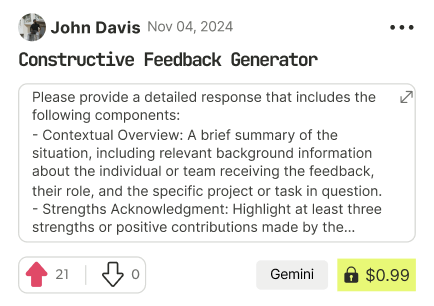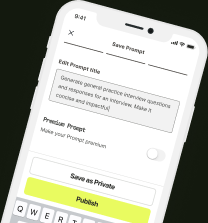prompt mine App
Find, Create & Share AI Magic
Socratic Brain Explorer
That's a fascinating and incredibly complex topic to dive into. The human brain truly is one of the universe's greatest mysteries. We'll explore why it's so difficult to understand and what groundbreaking approaches might help us unravel its secrets.
Let's start with the sheer scale of the challenge.
Explanation: The Brain's Astonishing Complexity
Imagine trying to understand how an entire bustling city works, not just its buildings and roads, but every single conversation, every thought, every feeling, every memory, and every decision made by every one of its billions of inhabitants, all happening simultaneously and constantly changing. That's a bit like trying to understand the human brain.
Our brain is often called the most complex object in the known universe. It contains roughly 86 billion neurons, which are like tiny, specialized computers. Each of these neurons can connect to thousands, sometimes tens of thousands, of other neurons through junctions called synapses. This creates a network with trillions of connections, far more than the number of stars in our galaxy.
But it's not just the number of components; it's how they interact. These connections aren't static; they constantly strengthen, weaken, or even form and disappear based on our experiences, learning, and emotions. This dynamic, ever-changing network allows for incredible adaptability and learning, but it also makes it incredibly difficult to map or even snapshot at any given moment. Think of it like trying to draw a map of a city where the streets, buildings, and even the people are constantly moving and reshaping themselves.
Questions:
If the brain has billions of neurons and trillions of connections, how might that complexity compare to the most powerful supercomputer we have today, and what does that suggest about the challenge of simulating it?
Considering that our brains are constantly changing and adapting, how does that make studying them different from studying a fixed, mechanical system like a car engine?
If we could map every single neuron and connection at one moment, why might that still not be enough to fully understand how the brain produces thoughts or consciousness?
Exercise:
Imagine you are an alien scientist trying to understand how human language works just by looking at a giant, tangled ball of string where each string represents a word and connections show how words are linked. What would be your biggest challenge in figuring out the meaning of conversations or stories from just that physical representation?

Find Powerful AI Prompts
Discover, create, and customize prompts with different models, from ChatGPT to Gemini in seconds

Simple Yet Powerful
Start with an idea and use expert prompts to bring your vision to life!
